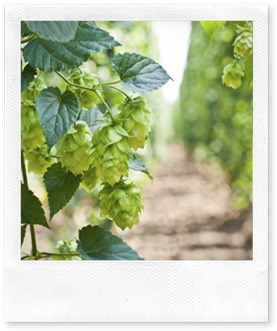 The use of herbal medicines, including those with phytoestrogen (weak estrogen-like, but not estrogen) compounds have gained an important place in the management of menopause symptoms.
The use of herbal medicines, including those with phytoestrogen (weak estrogen-like, but not estrogen) compounds have gained an important place in the management of menopause symptoms.
Phytoestrogens are classified in 3 main categories of flavonoids, coumestans and lignans. The hop plant contains phytoestrogens including prenylnaringenin and is thought to be the most potent of all the phytoestrogen compounds.
The current study was a double-blind controlled randomized clinical trial performed in Iran in 2013. Women enrolled were postmenopausal women aged 40-60 years, with at least 12 months since their last menstrual period, and premenopausal women who were still having menses, but less than one per month in the last 12 months, had hot flashes and had a significant Greene scale score. A total of 120 participants were divided into two groups, with one group receiving a hops tablet that contains 500 mg of the flowering part of the hop plant and 100mcg of the prenylnaringenin active ingredient and the other group placebo. Each group received one pill daily for 90 days.
Menopause symptoms were assessed using the Greene scale and hot flash diary before study medicine was given and at 4, 8 and 12 weeks of intervention. The mean Greene score was significantly lower in the hops group than the placebo group at the end of weeks 4, 8 and 12. The number of hot flashes was significantly lower in the hops group than the control group during weeks 4, 8 and 12. The hops tablet reduced the total score of the Greene Scale in premenopausal and postmenopausal women at weeks 4, 8 and 12 as 38%, 69.5% and 90% respectively compared with placebo of 1.2%, 2.6% and 3.6% respectively. The number of hot flashes in premenopausal and postmenopausal women was reduced in the hops group by 35.5%, 70.5% and 94.5% respectively and in the placebo group by 1.1%, 0.4% and 0.8% respectively.
Commentary: This is the third study using a hops tablet or hops capsule for relief of hot flashes, and other menopause symptoms. In one randomized, double-blind, placebo-controlled study, 67 menopausal women were given either a placebo, 100 mg, or 250 mg standardized hops extract for 12 weeks (Heyerick A, Vervarcke S, Depypere H, et al. A first prospective, randomized, double blind, placebo-controlled study on the use of a standardized hops extract to alleviate menopausal discomforts. Maturitas 2006;54:164-175). At 6 weeks, the 100 and 250 mg doses were significantly superior to placebo, but not after 12 weeks. Even so, there was a more rapid decrease in menopause symptoms, especially hot flashes, for both doses of hops extract.
A 2010 randomized, double-blind, placebo-controlled, cross-over pilot study was done to examine the efficacy of a hop extract for relief of menopausal symptoms. (Erkkola R, Vervarcke S, Vansteelandt S, et al. A randomized, double-blind, placebo-controlled, cross-over pilot study on the use of a standardized hops extract to alleviate menopausal discomforts. Phytomedicine 2010;17:389-396.)
Thirty six menopausal women were randomized to take either a placebo or the hops extract for a period of eight weeks and then they were switched to the opposite group for another 8 weeks. Common menopause research reporting forms were used including the Kummperman Index (KI), the Menopause Rating Scale (MRS) and a multifactorial Visual Analogue Scale (VAS). These reporting forms were used prior to starting the study, after 8 weeks and 16 weeks. After 8 weeks, both the hops group and the placebo group had significant improvement in outcome measures compared to the baseline and actually higher average reductions in the placebo group. After 16 weeks however, only the group that was on the hops extract in the second 8 weeks had a reduction in all outcome measures whereas the placebo group in the second 8 weeks had an increase for all outcome measures. Although the overall treatment efficacy of the hops treatment compared with the placebo did not show a significant effect, the time specific uses did indicate significant reductions in the KI and the VAS for the hops group, and a marginal reduction in symptoms for the MRS after 16 weeks.
Of these 3 studies, I would conclude that this current, 2015 study is the most positive report to date, on the use of an oral hop tablet or capsule for reducing menopause symptoms, and in particular, hot flashes.
Reference: Aghamiri V, Mirghafourvand M, Mohammad-Alizadeh-Charandabi S, Nazemiyeh H. The effect of Hop (Humulus lupulus L.) on early menopause symptoms and hot flashes: A randomized placebo-controlled trial. Complementary Therapies in Clinical Practice (2015), http://dx.doi.org/10.1016/j.ctcp.2015.05.001

